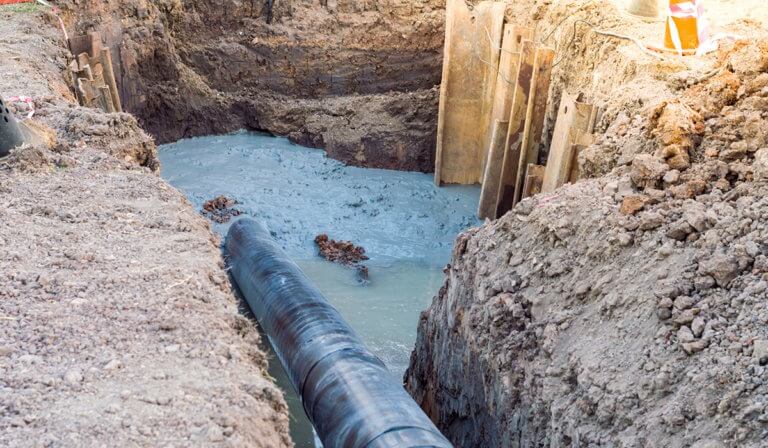
Drills, Spills and Skills
With all the petroleum and natural gas pipeline installation projects currently underway across the country, occasional environmental issues can, and do, arise during installation activities, especially when horizontal directional drilling (HDD) methods are employed. Environmental Standards has supported several clients with their environmental needs as their pipeline drilling projects progressed. Recently, Environmental Standards was retained to provide environmental consulting/litigation support services relative to a Notice of Violation (NOV) issued in association with fluid loss from a pilot hole being drilled as part of a pipeline project in southwestern United States. Our initial task was to conduct a detailed data review and critical review of water‑sampling data presented to the state regulatory agency by two non-governmental organizations (NGOs) on behalf of two potentially impacted private water well owners. To further evaluate the water-sampling results, Environmental Standards requested and reviewed information relating to sampling procedures, well construction information, geologic information, source material composition/analytical data, and Level 4 data packages for all samples submitted for laboratory analysis.
Environmental Standards also gathered the publicly available regional historical groundwater‑quality data and assessed those data to identify any consistencies in analyte detections and concentrations with the potentially impacted private water well data. Historical and current data were also evaluated for exceedances of health-based federal and state drinking water criteria. Multiple rounds of samples were collected from the potentially impacted wells, and Environmental Standards provided a data usability review and summary for each round of sampling based on an evaluation of the available information provided in the field notes and laboratory data packages.
As time passed, more homeowners claimed impacts to the quality of their well water allegedly resulting from the drilling fluid release. Environmental Standards was tasked with providing technical responses to claims made by opposing counsel representing almost 20 additional homeowners. Environmental Standards embarked on fate and transport modeling, geochemistry forensics, biodegradation applications, and historic groundwater-quality database research efforts to support our client’s defense of the claims.
Ultimately, our work highlighted that the three predominant constituents found in the drilling fluid/mud were absent from water samples collected from the residential wells; the primary biodegradation byproduct from a drilling mud additive was historically detected in water samples collected from regional wells. Our calculations and models predicted no impacts to the residential wells, and the demonstrated absence of any exceedances of health-based federal and state water‑quality criteria for the applicable constituents of concern shows that there is no evidence of any current or future impact to groundwater quality, which will assist our client in their defense of the unsupported claims.

